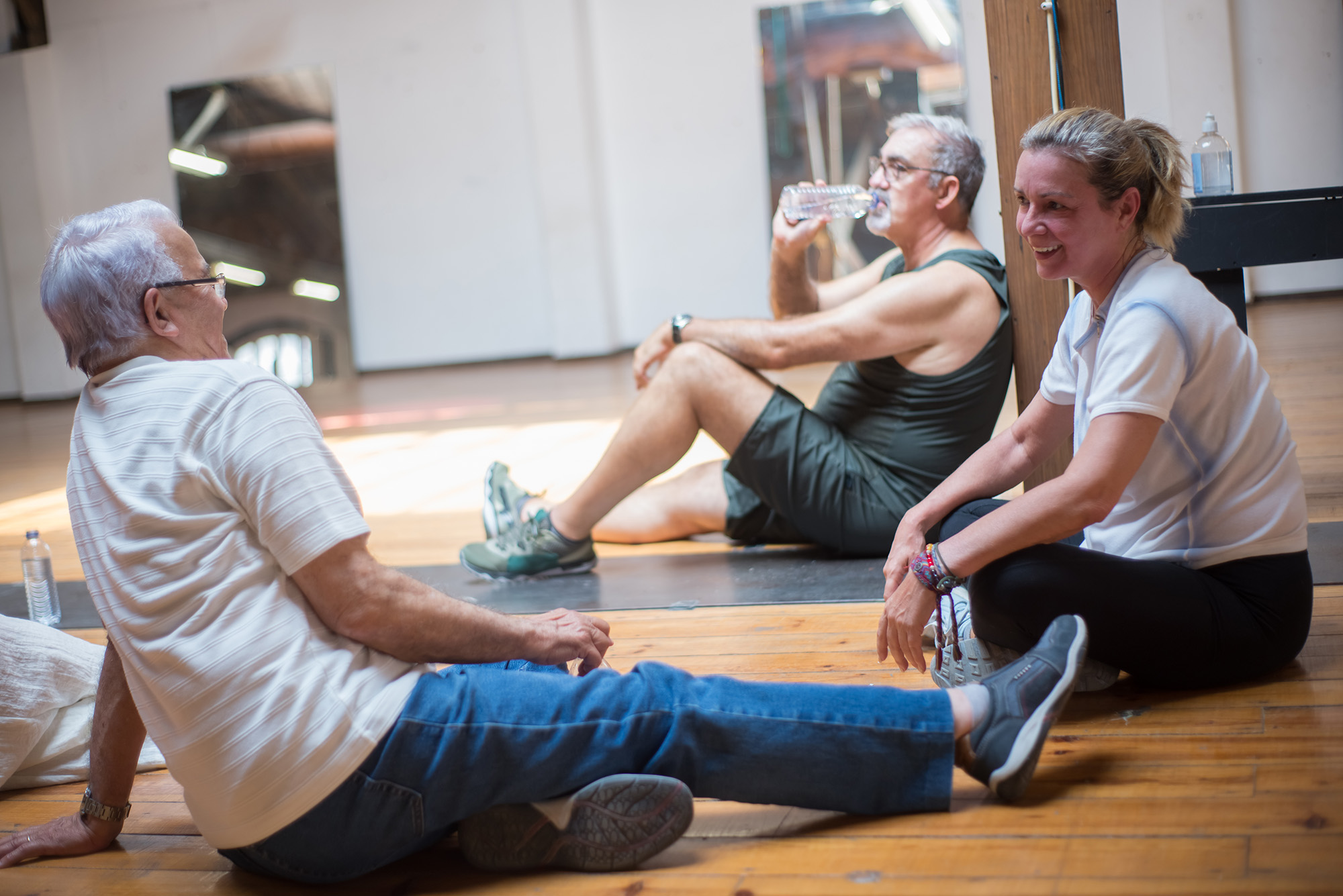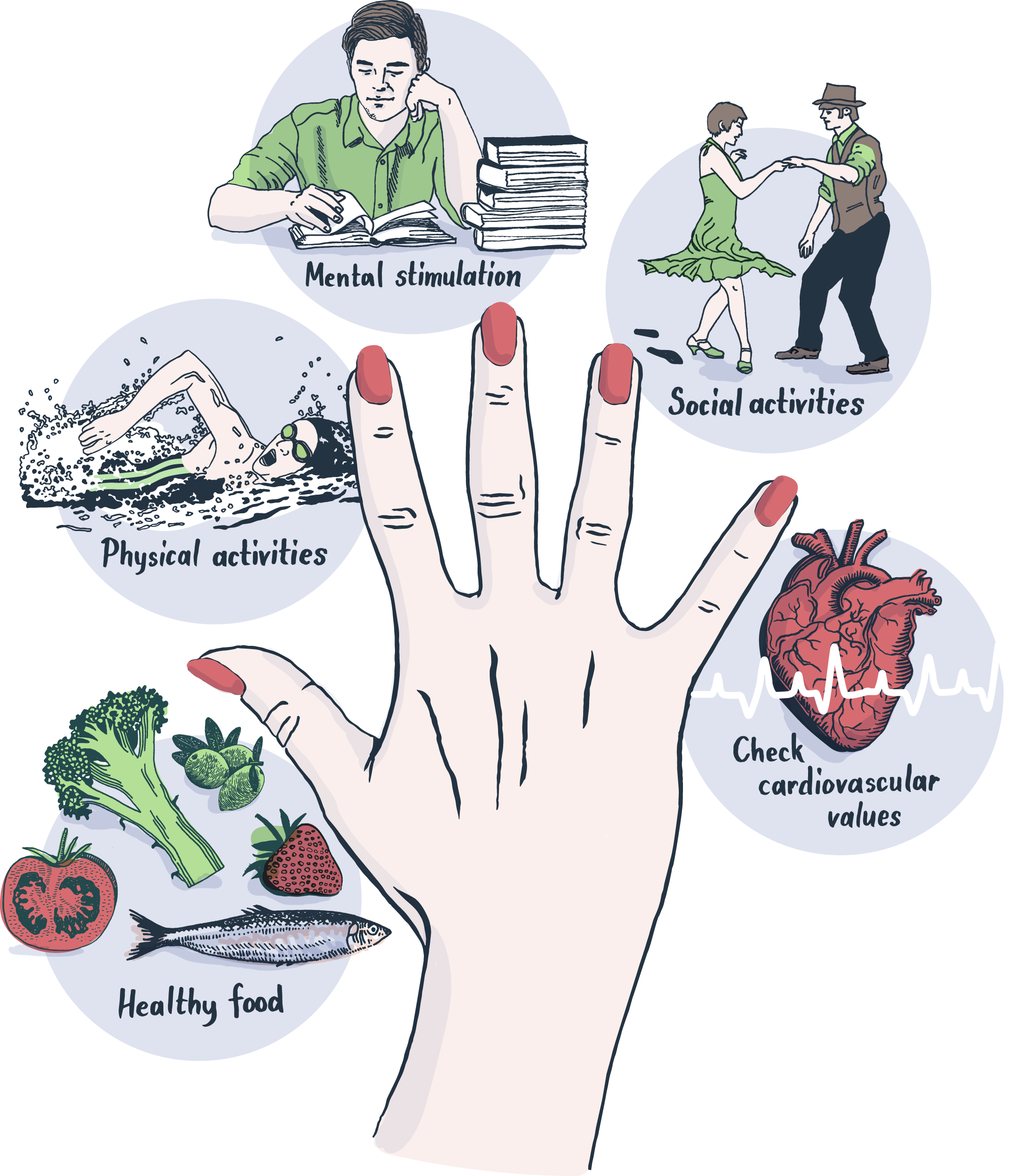prevent dementia and cognitive decline
The FINGER model is based on scientific evidence from the groundbreaking FINGER study, which showed that simultaneous lifestyle measures in five lifestyle areas can help prevent and delay the development of cognitive decline.
In short, the FINGER model is about involving all five “fingers” every day: healthy food, physical activity, mental stimulation, social activities, and monitoring of cardiovascular risk factors.
Building on the original FINGER study, research teams around the world have further tested, developed, and adapted the FINGER model in different settings.
The World-Wide FINGERS network was established in 2017 to unite these research teams and provide a platform for collaboration. The FINGERS Brain Health Institute, FBHI, is a hub and coordinating center of the network. We also drive implementation efforts to ensure scientific findings come to use for individuals and societies.

From research results to the
benefit of individuals and societies

Healthy diet
Like all our organs, our brain needs a balanced and nutritious food. The brain’s weight represents 2% of our body weight but uses 25% of our total energy.
Physical activity
Regular physical activity is essential for our health. It should consist of both cardio training and strength training activities.
Cognitive stimulation
Our brain can and should be trained throughout our lives. Education, hobbies, cognitive training and memory strategies all play an important role.
Social activities
Social activities and engagement are important for our brain health. We also need recovery and rest.
Cardiovascular risk factors
What is good for our hearts is good for our brains. Ensure to monitor blood pressure, cholesterol, blood sugar, and weight.
From research results to the
benefit of individuals and societies
Healthy food
Like all our organs, our brain needs balanced and nutritious food. The brain represents 2% of our body weight but uses 25% of our total energy.
Mental stimulation
Our brain can and should be trained throughout our lives. Education, hobbies, cognitive training, and memory strategies all play important roles.

Physical activity
Regular physical activity is essential for our health. A balanced mix of aerobic exercise and strength training is ideal.
Cardiovascular risk factors
What is good for our hearts is good for our brains. Get regular check-ups of blood pressure, cholesterol, blood glocuse, and body weight.
Social activities
Social activities do good for our brain health. We also need recovery and rest.

